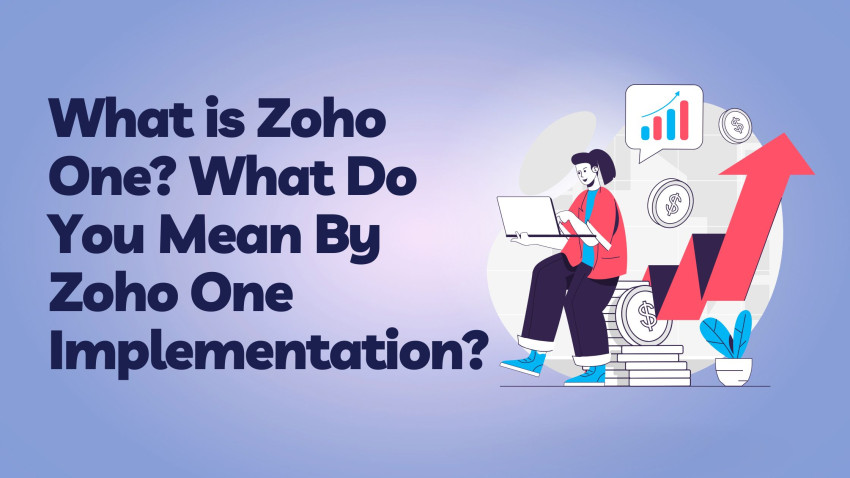
Zoho One is an extensive suite of business applications designed and offered by Zoho Corporation. It's an all-in-one platform that provides over 40 integrated applications to manage nearly every aspect of business operations. This suite covers various functions such as sales, marketing, customer support, accounting, human resources, productivity tools, and more.
The idea behind Zoho One is to provide businesses with a unified ecosystem of software solutions that work seamlessly together. This eliminates the need for multiple, disparate third-party applications and simplifies IT management, data integration, and workflow automation.
Key Features of Zoho One:
- Comprehensive Suite: Offers a wide range of applications for different business needs, from CRM and email marketing to accounting, HR management, and project management.
- Integration: All applications within Zoho One are designed to be integrable, providing a cohesive and interconnected business system.
- Customization: The platform allows customization to suit specific business requirements.
- Scalability: Suitable for businesses of all sizes and scales with the growth of the business.
- Cost-Effectiveness: Typically more affordable than purchasing multiple individual software solutions.
What Do You Mean By Zoho One Implementation?
Zoho One implementation refers to the process of deploying and setting up the Zoho One suite within a business. This involves several key steps:
Assessment and Planning: Evaluating the business’s specific needs and determining how Zoho One's applications can best meet these requirements. This includes identifying which apps will be used, how they will be integrated, and what kind of data migration is needed.
Customization and Configuration: Tailoring Zoho One applications to fit the unique workflows, processes, and policies of the business. This might involve setting up custom fields, workflow rules, automation, and user roles.
Data Migration: Importing existing business data into the Zoho One ecosystem from previous systems or databases.
Integration: Linking various Zoho One applications together and possibly integrating them with external systems or third-party tools.
Training and Support: Educating employees on how to use the various applications effectively. This is a crucial step to ensure high adoption and effective usage of the system.
Deployment: Rolling out the configured Zoho One suite for use across the business.
Ongoing Maintenance and Optimization: Continuously monitoring and tweaking the system as business needs evolve and new features are released.
Zoho One implementation aims to ensure that businesses fully leverage the suite’s capabilities to enhance efficiency, streamline operations, and improve data management across all business functions. Given its comprehensive nature, successful implementation often requires careful planning, expertise in Zoho products, and an understanding of the specific business’s processes and needs.





